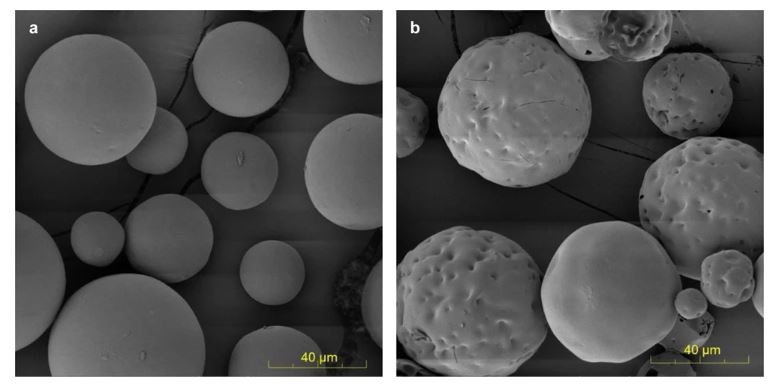Efficient aqueous remote loading of peptides in poly(lactic-co-glycolic acid)

Poly(lactic-co-glycolic acid) (PLGA) long-acting release depots are effective for extending the duration of action of peptide drugs. We describe efficient organic-solvent-free remote encapsulation based on the capacity of common uncapped PLGA to bind and absorb into the polymer phase net positively charged peptides from aqueous solution after short exposure at modest temperature. Leuprolide encapsulated by this approach in low-molecular-weight PLGA 75/25 microspheres slowly and continuously released peptide for over 56 days in vitro and suppressed testosterone production in rats in an equivalent manner as the 1-month Lupron Depot®. The technique is generalizable to encapsulate a number of net cationic peptides of various size, including octreotide, with competitive loading and encapsulation efficiencies to traditional methods. In certain cases, in vitro and in vivo performance of remote-loaded PLGA microspheres exceeded that relative to marketed products. Remote absorption encapsulation further removes the need for a critical organic solvent removal step after encapsulation, allowing for simple and cost-effective sterilization of the drug-free microspheres before encapsulation of the peptide.
Continue reading here
About this article: Giles, M.B., Hong, J.K.Y., Liu, Y. et al. Efficient aqueous remote loading of peptides in poly(lactic-co-glycolic acid). Nat Commun 13, 3282 (2022). https://doi.org/10.1038/s41467-022-30813-7

